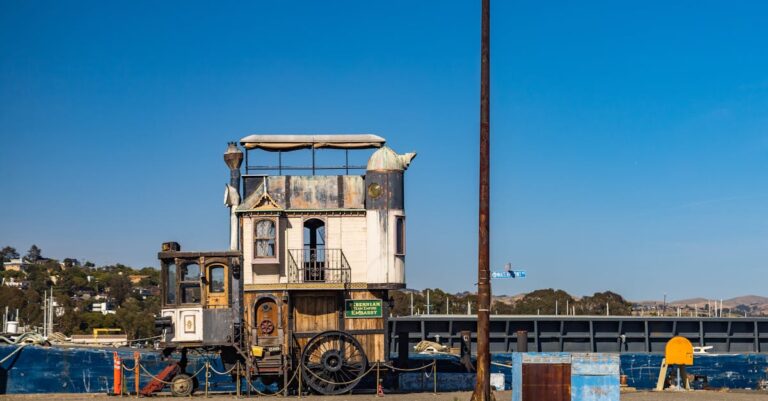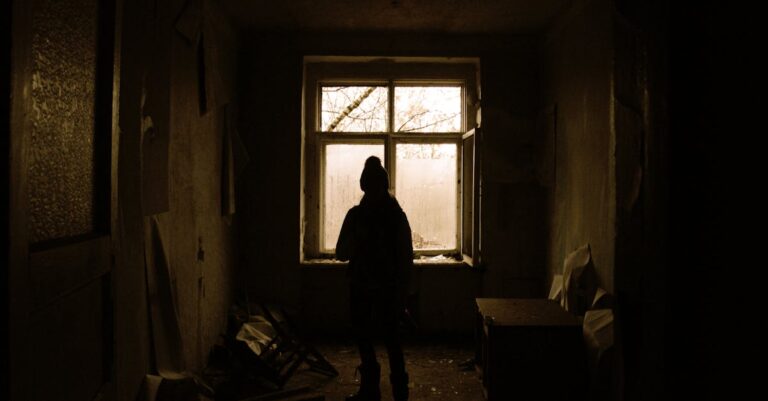Clara Voss wiped her hands on a greasy rag, the scent of oil and burnt coal clinging to her skin like a second layer. The camp was a fever dream of dust and noise—hammers clanging, voices rising in a cacophony of desperation. She adjusted the wrench in her grip, knuckles bruised from hours of tinkering, and stared at the steam engine groaning beneath her. It was a beast of iron and ambition, its pistons heaving like a dying man’s breath.
“You’re not supposed to be here,” a voice cut through the din. Clara didn’t look up. She knew that voice, sharp as a blade and twice as cold.
Thomas Grady stood at the edge of the workbench, his boots caked in mud, his coat stained with the same soot that clung to her. His eyes locked onto the engine, then flicked to her. “This is my rig.”
“It’s a dead man’s rig,” Clara said, her tone flat. She turned the wrench, the metal screeching in protest. “You’d know that if you’d bothered to check the valves.”
Thomas stepped closer, his shadow falling over her. The sun blazed overhead, turning the camp into a furnace. Clara could feel the heat on her neck, but she didn’t flinch.
“You’re still running,” he said.
She froze. The words hung in the air, heavier than the engine’s iron frame. She forced a laugh, low and bitter. “Running from what? A busted pipe?”
Thomas didn’t answer. He stared at her, his gaze piercing, as if he could strip away the layers of grease and lies she’d built around herself. Clara turned back to the engine, her hands steady despite the storm brewing in her chest.
The camp had been her refuge for three years, a place where no one asked questions. She’d arrived with nothing but a rusted toolbox and a name she’d buried deep. But Thomas Grady didn’t forget. He never did.
“You left me in the dust,” he said, his voice quieter now, almost unreadable. “In San Francisco. At the depot.”
Clara’s wrench slipped, clattering to the ground. She bent to pick it up, her back to him. “I didn’t have a choice.”
“You always have a choice,” he said. “You just don’t like the ones you make.”
The words cut deeper than she expected. She remembered the train station, the smell of coal smoke and fear, the way her mother’s hand had trembled as she pressed a ticket into Clara’s palm. “Go,” she’d whispered. “Find something better.”
But Clara hadn’t found anything better. Just more dirt, more noise, more ghosts.
“I’m not here to talk about the past,” she said, her voice sharp. “I’m here to fix this engine.”
Thomas didn’t move. The camp’s din swelled around them—voices, the groan of machinery, the distant clang of a hammer. Clara could feel his eyes on her, waiting. She hated that he still had this power over her, this way of making her feel like a girl again, small and vulnerable.
“You’re still running,” he said again, but this time it wasn’t a accusation. It was a statement, quiet and certain.
Clara didn’t answer. She turned back to the engine, her hands moving automatically, but her mind was elsewhere. The past had a way of catching up, no matter how hard you tried to outrun it.
Later, when the sun dipped low and the camp’s fires flickered like restless spirits, Clara found Thomas standing by the edge of the camp, staring at the horizon. She approached slowly, her boots crunching on gravel.
“You’re leaving,” she said.
He didn’t turn. “I have to.”
“Because of me?”
He finally looked at her, his face etched with something she couldn’t name. “Because of what you did in San Francisco.”
The words hit her like a blow. She’d thought the past was buried, that the lies she’d told and the choices she’d made would stay hidden beneath the dust of this camp. But Thomas had always been good at finding what others tried to forget.
“I didn’t have a choice,” she repeated, but this time it felt hollow.
Thomas stepped closer, his voice low. “You always have a choice, Clara. You just don’t like the ones you make.”
She wanted to argue, to tell him he didn’t understand. But the truth was, she didn’t even understand herself anymore.
The camp had been her escape, but now it felt like a cage. And Thomas Grady was the key she’d never wanted to hold.
That night, Clara sat by the fire, staring into the flames. The engine was fixed, the camp humming with life again, but she felt no relief. The past had caught up, and there was no running from it this time.
She thought of her mother’s trembling hand, the weight of the ticket, the way the train had disappeared into the fog. She’d told herself she was escaping, but what if she’d been running toward something just as broken?
Thomas’s words echoed in her mind. “You always have a choice.”
Clara closed her eyes, the fire’s glow painting shadows on her face. She didn’t know what the choice was, but she knew one thing: she couldn’t keep running. Not anymore.
The next morning, she found Thomas waiting at the edge of the camp, his pack slung over his shoulder. He looked at her, and for once, there was no accusation in his eyes—just quiet understanding.
“I’m going to San Francisco,” he said. “I need to see what’s real.”
Clara nodded, her throat tight. “Then go.”
He hesitated, then turned away. But as he walked, he called over his shoulder, “Don’t run from yourself this time, Clara.”
She watched him disappear into the dust, the weight of his words settling over her like a shroud. The camp was still, the fires dimmed, and for the first time in years, Clara felt something she hadn’t allowed herself in a long time.
Hope.
She turned back to the engine, its pistons steady, its rhythm a promise. The past was behind her, but the future? That was still hers to shape.


